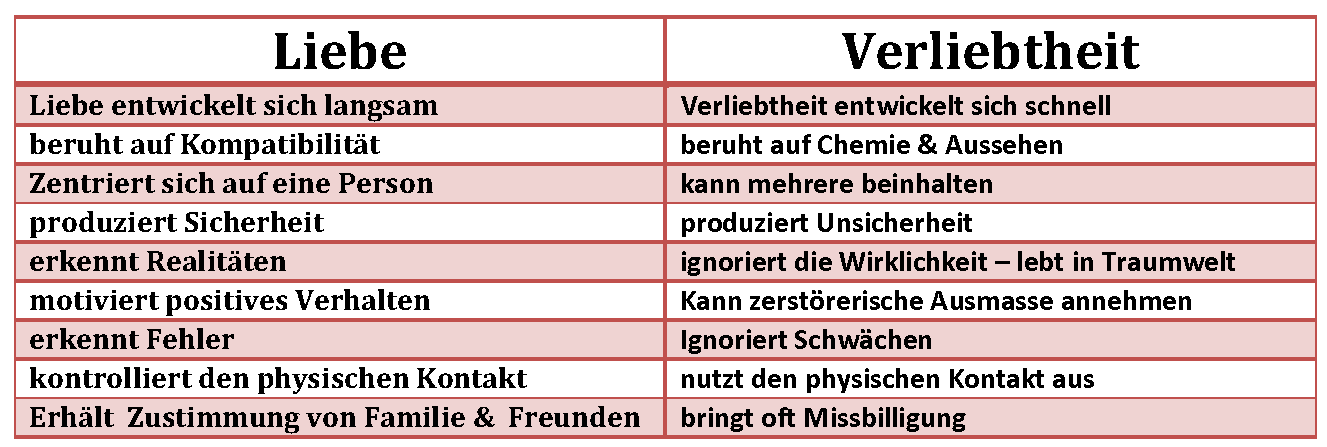....
Welch eine Freude, wenn Mann und Frau zusammen die Familie zu einem Gemeinschaftswerk machen mit dem Ziel, sich und den Kindern eine sinnvolle, gute Zukunft zu bauen! Aber die Realität zeigt, dass dies die Ausnahmen sind. Dieser Blog möchte den Leser ermutigen, hier einen Schritt vorwärts zu kommen.
..
What a joy when husband and wife together make the family a community effort with the goal of building a meaningful, good future for themselves and the children! But reality shows that these are the exceptions. This blog would like to encourage the reader to take a step forward here.
....
....
Wikipedia zu DUELL und DUETT
DUETT
Duo lateinisch meint ‚zwei‘. Ein Duett ist ein musikalisches Werk von zwei Musikern (Ensemble) oder zwei (Gesangs-)Solisten. Sogar in der Natur gibt es Tiere, wo zwei Partner im Duett singen.
DUELL
Lateinisch duellum meint ‚Zweikampf‘. Damit ist ein freiwilliger Zweikampf mit gleichen, potenziell tödlichen Waffen gemeint, wo Ehrenstreitigkeit nach traditionell festgelegten Regeln ausgetragen werden. Duelle sind in den meisten Ländern verboten.
..
Wikipedia on DUEL and DUETT
DUET
Duo Latin means 'two'. A duet is a musical work by two musicians (ensemble) or two (vocal) soloists. Even in nature there are animals where two partners sing in a duet.
DUEL
Latin duellum means 'duel'. This means a voluntary duel with the same, potentially deadly weapons, where honor disputes are fought according to traditionally established rules. Duels are prohibited in most countries.
....
....
Es ist einfach, eine Aktion des anderen zu verurteilen, wenn man die eigenen Vorlieben als Standard gesetzt hat!
..
It's easy to judge someone else's action if you set your preferences as the default!
....
....
Wichtig ist:
Vergeuden Sie keinen guten Konflikt!
Erkennen Sie die Chancen von Konflikten. Jeder Konflikt hat ein Wachstumspotenzial. Er zeigt den Weg zur Realität und Wahrheit und deutet auf wirklich Wichtiges hin. Ebenso zeigt er die Notwendigkeit für eine Anpassung, denn so kann die Situation schnell zu einer Verbesserung und zu mehr Reife führen.
Es leuchtet schnell ein, dass die eigene PerVsönlichkeit bei der Konfliktlösung starken Einfluss auf das Ergebnis hat. Es folgende einige heisse Fragen, die Sie vielleicht für sich beantworten können:
Wie tendieren Sie, mit täglichen Konflikten umzugehen? (LINK)
Verlieren Sie dabei viel Energie, werden Sie schnell unsicher, verlieren das Gleichgewicht und wissen nicht, wie zu einer Lösung zu kommen?
Können Sie mit freundlichen Augen NEIN sagen, sogar Danke, oder ‘der Moment ist ungünstig’, oder Sie verweisen nett auf Regeln oder Prinzipien und wissen im richtigen Moment das Richtige zu sagen? SUPER!
Haben Sie ein gereiftes Temperament, (LINK)
das gelernt hat, bei Konflikten den Nutzen, die Wahrheit und damit eine gute Lösung zu suchen?
oder ist Ihnen das egal, dafür aber wichtig, dass Sie Ihre Ehre gerettet sehen?
Worauf haben Sie Ihren Selbstwert gebaut? (LINK)
Ist Ihnen Ihr Leistungsausweis wichtiger als Ihre Beziehungen?
Sind Sie erst dann mit einer Konfliktlösung einverstanden, wenn ein Gewinn gesichert ist?
Oder sind Ihnen die Beziehungen wichtiger als alles andere, damit Sie keine Beziehungsprobleme erhalten?
Sind Ihnen die Liebessprachen des Partner oder Ihre eigenen bekannt? (LINK)
Könnte es sein, dass jener Konlikt gerade auf einer der fünf Liebessprachen beim Partner herumgetrampelt hat?
Gab es anstatt eine Anerkennung eine vielleicht zu starke Rüge?
Wurde anstatt etwas Zärtlichkeit körperliche oder sprachliche Strenge angewendet?
Ist vielleicht beim Konflikt die praktische Hilfe untergegangen?
Für welche der folgenden varianten haben Sie sich im letzten Konflikt eingesetzt? (LINK)
RÜCKZUG? - fluchtartig das Konfliktfeld verlassen, Vermeidung angemeldet und alles unter den Teppich gekehrt?
DURCHSETZEN? - ging es darum, sich definitiv durchzusetzen, koste es was es wolle?
KOMPROMISS? - versuchten Sie einen Kompromis zu erreichen, wo jeder von seinen Forderungen abrückt und etwas entgegenkommt, bis der Partner zufrieden ist?
NACHGEBEN? - war es einfacher, einfach nachzugeben, sich zu unterwerfen und um der Harmonie will auf Wichtiges zu verzichten?
KOOPERATION? - oder entschieden Sie sich für die meistens beste Lösung, die auf kreative Zusammenarbeit zählt und eine optimale Lösung mit beidseitigen Interessen verfolgt?
..
Important is:
Don't waste a good conflict!
Recognize the chances of conflict. Every conflict has growth potential. It shows the way to reality and truth and points to something really important. He also shows the need for adjustment, because the situation can quickly lead to improvement and more maturity.
It quickly becomes clear that your own personality has a strong influence on the result when resolving conflicts. The following are some hot questions that you may be able to answer for yourself:
How do you tend to deal with daily conflicts? (LINK)
Do you lose a lot of energy, do you quickly become insecure, lose your balance and do not know how to find a solution?
Can you say NO with kind eyes, even thank you, or ‘the moment is bad’, or do you refer nicely to rules or principles and know how to say the right thing at the right time? EXCELLENT!
Do you have a mature temperament, (LINK)
who has learned to look for the benefits, the truth and thus a good solution in conflicts?
or do you not care, but it is important that you see your honor saved?
What did you build your self-worth on? (LINK)
Is your track record more important than your relationships?
Do you only agree to a conflict resolution when a profit is secured?
Or are the relationships more important to you than anything else so that you do not have any relationship problems?
Do you know the partner's love languages or your own? (LINK)
Could it be that that conflict just trampled on one of the five love languages at the partner?
Was there perhaps too much reprimand instead of recognition?
Was physical or linguistic rigor used instead of tenderness?
Has practical help perished in the conflict?
Which of the following variants did you support in the last conflict? (LINK)
RETREAT? - fleeing the conflict area in a hurry, avoidance announced and everything swept under the carpet?
PUSH THROUGH? - was it about definitely asserting yourself, whatever the cost?
COMPROMISE? - did you try to reach a compromise, where everyone moves away from their demands and comes up to something until the partner is satisfied?
GIVE IN? - was it easier to just give in, to submit and for harmony to forego important things?
COOPERATION? - or did you opt for the best solution in most cases, which relies on creative cooperation and pursues an optimal solution with mutual interests?
....
....
Oft erschweren die eingenommen Rollen die Konfliktlösung. Sind Sie ein Lehrer, der sich gewohnt ist, Schiedsrichter zu sein, immer recht zu haben und daher gewohnt ist, Entscheidungen für ‘Untergebene’ zu fällen? Dann ist es viel herausfordernder, demokratisch, einfühlsam, wohlwollend gemeinsam eine Lösung zu suchen.
..
Often the roles taken make conflict resolution more difficult. Are you a teacher who is used to being a referee, always being right and therefore used to making decisions for 'subordinates'? Then it is much more challenging to look for a solution together democratically, sensitively, benevolently.
....
....
Selbsterkenntnis ist entscheidend
Wir haben gesehen, dass wer wir sind eine entscheidende Rolle im Konflikt-Management einnimmt. Wer in der Balance lebt, hat schnell eine gesunde Lösung gefunden. Interessant, dass in der Bibel dieses Thema auch angesprochen wird. Mir gefällt besonders die Aussage von Paulus in Epheser Kapitel 5 Vers 28:
Wer seinen Ehepartner liebt, der liebt sich selbst!
Wenn ich also meine Defizite und Stärken kenne, erkenne ich sie auch in Mitmenschen eher. Damit lassen sich tagtägliche Herausforderungen viel besser lösen.
..
Self-awareness is crucial
We have seen that who we are plays a crucial role in conflict management. Those who live in balance have quickly found a healthy solution. Interesting that this topic is also addressed in the Bible. I particularly like Paul's statement in Ephesians chapter 5 verse 28:
If you love your spouse, you love yourself!
So if I know my deficits and strengths, I'm more likely to recognize them in others. This makes it much easier to solve everyday challenges.
....
....
Fragen Sie sich doch einmal, wieweit Sie sich selber lieben. Können Sie das in etwa beantworten und vergleichen es mit der Liebesqualität, die Sie Ihrem PartnerIn entgegenbringen, dann wird Ihnen dieser obige Satz verständlicher sein.
..
Ask yourself how much you love yourself. If you can roughly answer that and compare it with the quality of love that you show your partner, then this sentence above will be more understandable to you.
....
....
Selbstliebe und Sozialkompetenz (LINK)
Diese beiden wichtigen Komponenten bestimmen unsere Lebensqualität. Wer hier investiert, wird belohnt. Unsere Ängste stören uns dabei. Diese sollten mit positiven Argumenten, eben mit Liebes-Gedanken ersetzt werden. Wer seine Gedanken auf Liebe gründet, hat gute Früchte zu ernten.
In unserem christlichen Abendland haben wir auch christliche Werte entwickelt. Sie sind nicht mehr überall spürbar, aber trotzdem sehr wichtig. Hier sind einige:
Respektiere deinen Nächsten
Achte deinen Nächsten höher als dich selbst
Jede Person ist liebenswert
Zusammen sind wir stärker
Natürlich spielt unser Verständnis der Liebe, sei es bedingte oder bedingungslose (LINK) eine wichtige Rolle. Auch unser Bedürfnis nach Harmonie und Akzeptanz kann bezüglich Ergebnis eines Konfliktes sehr entscheidend sein. Hier noch einige Schlagwörter, die unterstützend sein können:
Nicht alle Konflikte sind lösbar
Warum nicht dem Humor auch noch etwas Platz geben?
Besser auf Sachebene als auf Schuldebene diskutieren
Wer ‘Entschuldigung’ sagen kann, hilft damit weiter
Anstatt einen Mauerbau hilft eine positive Grundeinstellung besser
Übernehmen von Verantwortung und geben von Vertrauen hilft
Ich wünsche Ihnen in Ihren nächsten Konflikt viel Erfolg !!
..
Self-love and social competence (LINK)
These two important components determine our quality of life. Anyone who invests here will be rewarded. Our fears disturb us. These should be replaced with positive arguments, namely with love thoughts. Those who base their thoughts on love have good fruits to reap.
In our Christian West, we have also developed Christian values. They can no longer be felt everywhere, but are still very important. Here are some:
Respect your neighbor
Respect your neighbor higher than yourself
Every person is lovable
Together we are stronger
Of course, our understanding of love, be it conditional or unconditional (LINK), plays an important role. Our need for harmony and acceptance can also be very important when it comes to the outcome of a conflict. Here are some key words that can be supportive:
Not all conflicts are solvable
Why not give the humor a little space too?
It is better to discuss at the factual level than at the guilt level
If you can say ‘sorry’, you will help further
Instead of building a wall, a positive basic attitude helps better
Taking responsibility and giving trust helps
I wish you every success in your next conflict !!
....





















